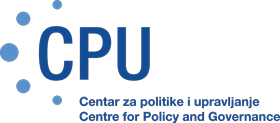Centre for Policy and Governance, in cooperation with the FOD BiH (Open Society Fund Bosnia and Herzegovina), has started the implementation of the project "Encouraging sustainable and inclusive development in BiH through Circular Economy models", with the aim of promoting development opportunities and encouraging the use of business opportunities for the application of the circular economy model in BiH.
The specific objectives of the project are:
1. To create analytical contents in the field of circular economy which aim to present the very concept adapted to the BiH context, as well as examples from the practice of business models of circular economy.
2. Inform key stakeholders about the very concept, benefits and business models of the circular economy.
3. Support the development of local capacities in the field of circular economy, and initiate the process of connecting and cooperating individuals and organizations active in this field.
Project duration: 12 months
Project budget: 136.430 USD
